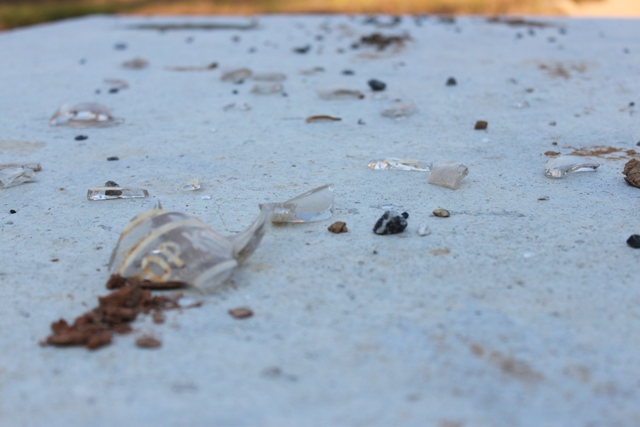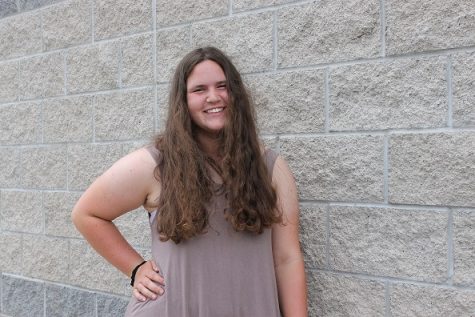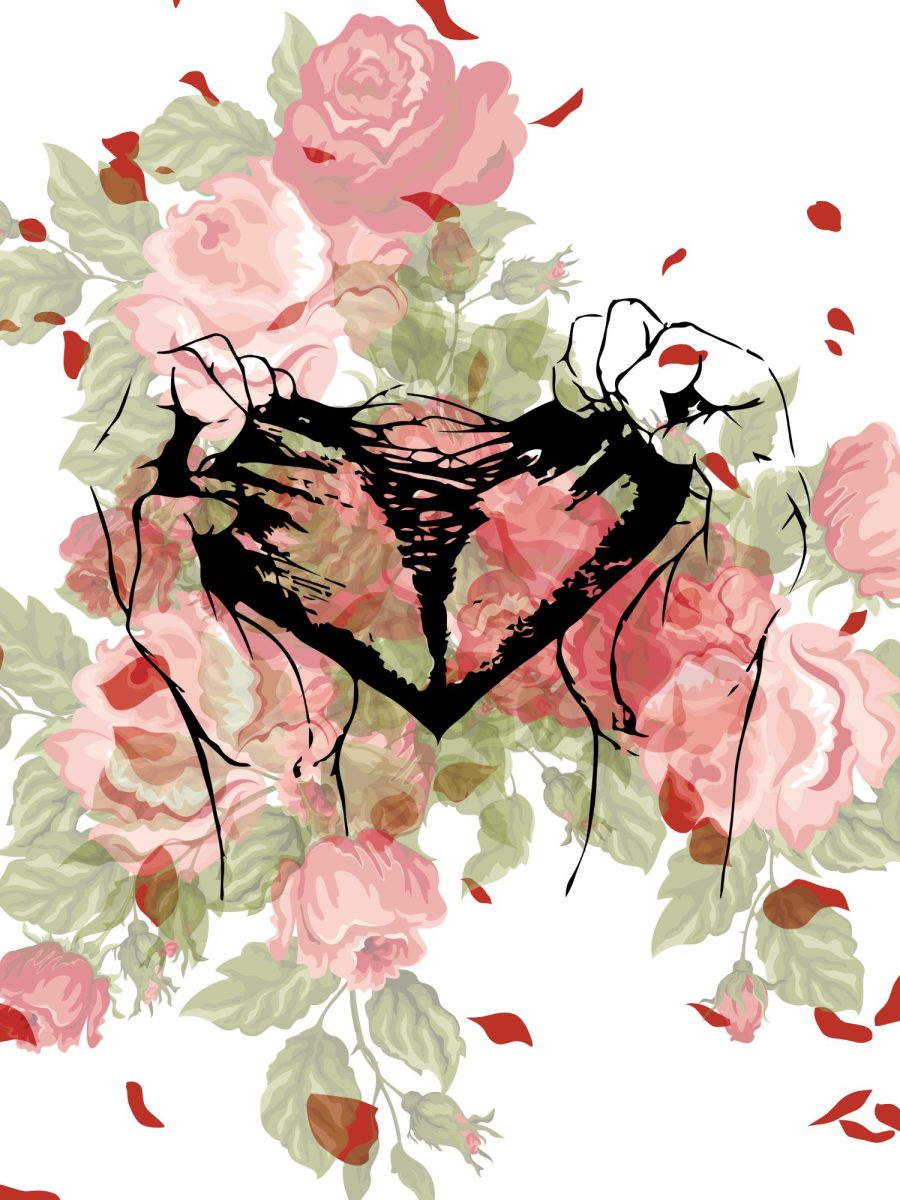Rot
The next few days are the same, thinking about the trees and dirt outside, thinking about God, thinking about finding a new job, thinking about her. Some days she comes home and when it’s sunny outside, I’m on the ground and she’ll sit beside me. We’ll talk about our day and write words into the dirt before going inside to wash our hands and make dinner.
May 15, 2017
Romanticism exists in soil. Decayed and decaying and will decay.
Pieces of God are underneath dying grass with flecks of something holy and poetic in the pollen and leaves. And there’s dirt underneath my fingernails, and I taste it when I chew them.
I exist at the same time with things and creatures that have existed for centuries, and I think the tree in my backyard has fought God.
She’s lying in bed with me, and there’s a dent in my mattress so we both roll towards the middle, leaning against each other with heavy and shallow breaths from deep sleep. I’m not awake, but I’m not asleep, existing in a limbo between types of consciousness, when the alarm on her phone goes off. She wakes slowly, and I pretend to be asleep all while she gets dressed, hearing her bare feet tap against the floor, spotting slithers of skin as she gets dressed. And when she’s dressed with her teeth brushed and ready to leave, she kisses my head like I’m still asleep and says, Have a good day. I love you.
I haven’t showered in three days now, haven’t brushed my hair since yesterday, so I get up and shower for a really long time, just because I forget to get out. I dress myself in her clothes, her jeans and her shirt with my sweater, so I can look like myself but know underneath I’m still a part of her.
I don’t have things to do, because I rarely have things to do anymore. I know you’ll get a job soon! I heard her say, about a month ago, and I’m tired of looking. I stand on our porch with tea that she made but forgot, left behind. It’s cold. I dip my finger in it and grimace, pouring it out into the bushes. I have the impulse to sit down in the leaves and lean onto the tree that’s fought God and dig into the soil, but I don’t. I decide that the tree who fought God didn’t win but didn’t lose; it was a draw.
I step inside when it rains, noticing first the droplets falling into the cold tea before I noticed them making me cold, and I watch from my window like God towards the tree and the surrounding mushrooms, imagining ants and beetles seeking refuge underneath them. The worms are fine.
I sit and I write, mostly about the cobwebs in the corner of our bedroom and the fact that I should get a new mattress that we can’t afford, because that’s what jobless writers write. I write about wanting to make her happy. I write about how it was the tree who decided it was a draw while God bitterly agreed because he knew he was beaten if he said otherwise. I want to be published, but I don’t know of anyone who would care about the perspective of a tree in comparison to the word of God.
When she gets home, she reads my work because that’s what she does while I make dinner—I still get nervous when she reads what I write, though she mostly says the same thing, pointing out spelling errors and telling me she loves it.
You’re fascinated with the worms, she says.
The worms?
The worms, she answers.
I’m fascinated with nature.
That isn’t original.
No, but it’s poetic.
I like to think you can be poetic about worms.
I smile at her. Would it make a good book?
Can you make fifty thousand words about worms?
I don’t think so.
I’d be impressed.
My hand’s on her thigh because I’ve lost focus from dinner. Her lips are chapped, and my fingernails are grossly chewed, so we’re both minutely flawed when we kiss, rough around the edges. We pull away once what’s on the pot begins to burn.
I could write fifty thousand words about you.
You’ve done that before.
I could write a hundred thousand words about you.
That’d be redundant.
I’d enjoy it.
I don’t know how marketable I am.
Plenty.
Save the zucchini.
I smile and do.
We eat dinner around a round table because that’s the one she picked out, and she tells me about her day and I say not much because she’s already read about my day. And I’m sad because she’s my whole day and I barely am enough to be her minute. And I think what I always think, which is that she deserves much more than ten minutes and a mediocre story about her and worms.
The next few days are the same, thinking about the trees and dirt outside, thinking about God, thinking about finding a new job, thinking about her. Some days she comes home and when it’s sunny outside, I’m on the ground and she’ll sit beside me. We’ll talk about our day and write words into the dirt before going inside to wash our hands and make dinner.
It’s become habit to trace my finger into the soil, clutch onto fistfuls of dying grass, consider the fights between man and God and nature, and when she’ll come home after days or minutes, she’ll guide me back inside. We’ll wash our hands together. There will be dirt underneath my fingernails and peeled skin on my palms.
During the day, I daydream of finding flakes of quartz and gold, stuck to my fingers until they become a part of me.
At night, she’s dead weight when she sleeps, hunkered on me like anchor. Her hair tickles my nose. I love you, I say out loud, to the ceiling and her.
And she leaves the next morning, with a kiss to my hair and an I love you too.
And today’s especially bad, for no reason at all. I’m on the edge of tears, and I don’t know why. I toss the tennis ball at the headboard of our bed and pretend that I have a dog and try to find ways to make my sadness poetic. I wonder when happiness plateaus.
I’m using a stick to draw monsters into the dirt today, not my fingers, and I don’t notice when she walks towards me until she sits down beside me and throws dirt on my drawing.
I liked him.
Who?
The monster I drew.
Why?
I made him.
I don’t get it.
I toss the stick to the side and pull my knees to my chest, chin on my arms folded over my knees. Me neither.
Did you write?
No.
Did you want to?
Yes.
At least you still have that.
I turn my face so my cheeks on my arm, one eye closed, and I’m looking at her with a small smile because I can’t help it. I ask how her day was. The domestic sort of questions that should be boring after a while, but her day is always more interesting than mine. Her name has always been synonymous to interesting.
Seb? I say.
Yeah? she says.
Do you want to be married one day?
Maybe.
I don’t think I do.
Never?
No.
We fought for a very long time to be able to get married.
I laugh and pick up my head. I know. Hands stretched out behind me, I kick off my shoes so my heels are in the dirt, until I just fall back. I want to be naked now, sinking down into the soil, amongst the dirt and rocks and worms and oil. She’s plucking grass from my hair and talking about how I could start gardening now, how the acidity of the soil determines the colors of the plants so I could decide what color they would be, and I just keep thinking about how I don’t think I could play God.
You think too much. I haven’t even told her about what’s storming inside of my head but she can tell.
I know.
She kisses me.
If I married anyone, I’d marry you.
That almost sounds like a marriage proposal.
Almost.
Almost.
There’s soil in my fingertips and in my hair, and sometimes my emotions have that consistency of dirt between my teeth. But she’s soft like mud, and I’d make a ring for her from the tree that fought God if I only had the tools. So we lie in the yard together, breathing and alive, and when we close our eyes and kiss, we’re like our own ecosystem of blood and affection. And she loves me. And the romance breathes like the trees and quivered underneath us like the soil, with our almost marriage proposal. And we love naturally, even if we were to die like married old ladies lying in the yard like we always did and decomposed with maggots in our lungs and hearts to become what the worms eat. Not always pretty, not always beautiful, but romantic, natural, and endless like notions of God.
We look up the sky, without meaning or reason.
I think we should put out a hummingbird feeder, she says.
I think that’d be nice.
And it’s quiet. And we hold hands and decompose.




